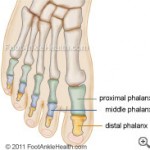Foot odor can be very unpleasant and embarrassing. Many people describe it as a cheesy or vinegary smell that sticks to their feet, socks, and shoes.
Foot odor is caused by sweat mixed with bacteria from your skin. Most people have over 250,000 sweat glands in our feet that produce a pint of moisture every day.
Others have more than the average number of sweat glands, and sweat excessively. Some people sweat only during the hot months of the year, while others sweat year-round.
Sweat by itself is odorless, but when it comes into contact with bacteria it begins to smell bad. Some bacteria are known to eat away at the top layer of skin, but this is usually only seen in severe cases.
Shoes and socks are the perfect environment for sweat and bacteria to mingle, which is why it’s critical to maintain proper hygiene. You may not at first notice the odor, which may only be in your shoes. Eventually, however, the odor will become hard for you and everyone else to ignore.
Why Do My Feet Stink?
Most of the moisture our feet produce each day evaporates before it has a chance to attract bacteria. But if you wear socks and shoes that do not allow evaporation, the moisture gets trapped and the bacteria begin growing.
The bacteria initially stick to the shoes and socks, but over time they stick to the skin and cause the foot to smell bad. Still, our footwear isn’t the only thing that can cause our feet to smell. Additional causes of foot odor include:
- Hyperhidrosis (sweaty feet)
- Stress
- Medication
- Alcohol and drugs
- Hormone changes, such as can be brought on by puberty or menopause
- Poor hygiene
How Can I Prevent Foot Odor?
There are several things you can do to prevent or minimize foot odor:
- Wash your feet daily with soap and water
- Keep your toenails trimmed
- Always wear fresh, synthetic socks
- Use a disinfecting spray in your shoes, similar to what is used at a bowling alley
- Keep your feet dry as much as possible
- Change your footwear to ensure the material allows your feet to breathe
- Don’t wear the same pair of shoes every day
- Sprinkle baking soda in your shoes to kill bacteria
- Apply a zinc and castor oil cream daily after washing the feet
- Odor eaters and powders for your feet
- Before washing your socks turn them inside out to allow the dead flakes of skin to wash away more easily
If you have foot odor, you should consider seeing a podiatrist before attempting to cure the problem yourself. A podiatrist may be able to recommend a specific product for your case. He or she may also be able to prescribe you foot powders, creams, or ointments if your case is severe.
There are also effective over-the-counter products not found in the medicine aisle. Baking soda, or sodium bicarbonate, is much cheaper than many odor-eaters and powders, and it works just as effectively. But again, it’s important to check with your podiatrist first.
To help reduce foot odor further, avoid wearing nylon socks or plastic shoes. Socks should be made of cotton or wool, and shoes should be canvas or mesh.
Can Foot Odor Be Treated?
Yes. Many of the prevention methods listed above also work as treatments. Odor eaters, creams, disinfecting spray, and shoes and socks made of breathable materials are all ways to treat foot odor. All these items are available at any pharmacy or grocery store.
More severe cases should be treated by a podiatrist with prescription-strength products. There are also electrical devices that can eliminate perspiration for several weeks by passing mild electrical current through the skin.
If these measures do not improve symptoms, your doctor may suggest a surgery that involves cutting the nerve that controls sweating.
There are a variety of home remedies to help you rid yourself of your odorous feet. Soaking your feet, believe it or not, can help to eliminate an embarrassing odor.
Some solutions dry your feet out, while others make the surface an unbearable environment for bacteria to live. Before trying any of these solutions, talk with your primary care physician or a podiatrist first:
Tea: Tea contains tannic acid, which is good for drying out your feet. Experts say to soak your feet in tea for approximately 30 minutes a day for one week.
Salt Water: Using ½ cup of kosher salt for every quart of water, soak your feet for approximately twenty minutes each day. Do not rinse your feet after removing them from the water. Instead, dry them thoroughly and go about your day.
Bleach: Use bleach with caution; it has the potential to over-dry your feet and skin. Add two tablespoons of bleach to a gallon of warm water and soak your feet in the solution for five to ten minutes a day for one week. If you find this solution dries your skin too much, try adding a little baby oil to it before soaking.
Sodium Bicarbonate: This is a fancy word for baking soda. Add 1 tbsp of baking soda for every quart of water. This solution makes it difficult for bacteria to grow.
Questions to Ask Your Doctor
Here are some questions you may want to ask your doctor about foot odor:
- What is causing my feet to smell?
- How long will it take to see results after treatment starts?
- What symptoms other than the odor should I watch for that may indicate that treatment is not working or that another problem is developing?
- At what point will we consider surgery?
- What foods in my diet may be causing the odor?
- What foods might help to eliminate the odor?




